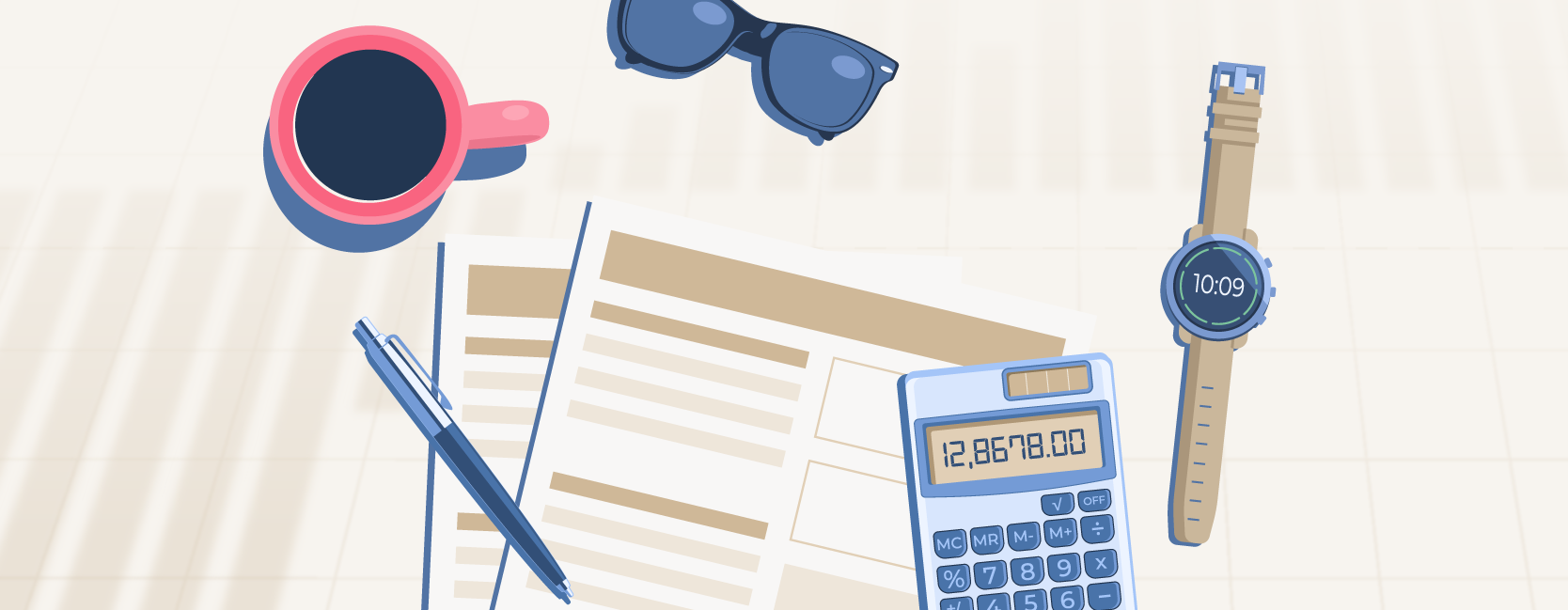A survey by the UK government revealed that 4.1 million people in the UK work for themselves. However, being self-employed doesn’t mean you can avoid taxes. There’s no avoiding giving the government its due and doing it right the first time is essential.
| 🧑 Who is a self-employed person? | A person who works for themselves and reports self-employment income |
| 🤔 Do I need to register as a self-employed in the UK? | Yes, you need to register with HMRC |
| ⚖️ How much can I earn before registering as self-employed in the UK? | £1,000 |
| 🤏 How much tax do I pay if I am a self-employed UK? | It will depend on your income tax bracket but you have a £12,570 tax-free personal allowance |
Unlike employees, you don’t have your taxes deducted automatically from your paycheck when you’re self-employed. Therefore, it’s up to you to keep track of your dues and pay it on schedule to avoid an audit. That’s why this article walks you through how to pay self-employed tax.
Since the taxes are not automatically removed like employees, self-employed taxes tend to be higher. Therefore, it’s best you set aside a part of your revenue to cover your obligations to the government. Below are the basics of how the self-employment tax works.
Who is self-employed?
If you’re wondering how to pay self-employed tax, you first have to learn who is self-employed according to the law. A self-employed person runs a business for themselves. As a business owner, you’re responsible for every failure and success of the business.
Another indication that you’re self-employed is that you’re not paid via Pay As You Earn (PAYE). A self-employed person doesn’t have the same rights and responsibilities as an employee.
You can be employed and self-employed simultaneously if you run a business in the evening and work for an employer in the daytime. However, if you believe you’re self-employed, you must inform HM Revenue and Customs of the developments.
What is self-employed tax?
Now that you know who is self-employed, you should also learn what self-employed tax is and how to pay self-employment tax. Self-employment tax is how sole traders pay their income tax and Class 4 National Insurance contributions on profits to HMRC.
If you’re earning over £85,000 yearly from being self-employed, you must register and start paying value-added tax. You can still register for tax if you earn below this amount. By doing this, you can claim VAT on every business purchase. However, you must remit VAT returns to HMRC if you register.
How does self-employment tax payment work?
If you work for an employer, they’ll give you a payslip reflecting that your taxes are already deducted. However, self-employed taxes are quite different. You have to manage your tax as self-employed. However, the difference is that every time you get paid in the business or through a customer, there’s no tax deducted from the payment.
Therefore, it is up to you to calculate how much national insurance and tax you should pay from the revenue. Due to your registration with HMRC as self-employed, you’ll get a tax bill twice each year. The first comes by 31st January and the second arrives by 31st July. Additionally, you’ll have to fill out a tax return once a year to declare your earnings when paying self-employed tax. Again, this is usually by 31st January.
How much can I earn tax-free if I’m self-employed?
When learning how to pay self-employed tax, you should also know that there is some amount you can earn tax-free. This is because you’re entitled to a £12,570 tax-free personal allowance as an employed individual when you’re self-employed. However, your personal allowance depends on how much you can earn before you start paying income tax.
There is a 20% basic income tax rate on earnings between £12,571 and £50,270. Higher income taxpayers pay 40% on £50,271 to £150,000 earnings, while additional rate payers have a 45% income tax on earnings above £150,000.
The rules are slightly different if you’re an employee and still self-employed. You only get one personal allowance which the HMRC applies to what it deems to be your primary employment. Applying your personal allowance to a job that pays you more is common.
Additionally, if you’re learning how to pay less self-employed tax, there’s a way. You can earn up to £1,000 tax-free from your trading or property allowance. So, if you’re earning an income of less than £1,000, there’s no need to declare it even if you’re learning how to pay self-employed tax. However, if your income exceeds this, you must register and fill out a self-assessment tax return. You should note that claiming this allowance means you cannot remove business expenses.
National insurance contributions if you’re self-employed
National Insurance contributions are payments for benefits like universal credit and state pension. In some ways, they’re your self-employed pension contributions. Some of these benefits, like your pension, are based on your contribution. Most self-employed persons pay class 2 NICs. This is important if you earned up to £6,515 in the 2021/22 tax year.
If your earnings are above this limit, you must pay £3.05 weekly or £158.60 yearly for the tax year. Those with profits higher than £9,500 or higher in 2020/21 have to pay the Class 4 NICs.
How to pay your tax and national insurance when self-Employed
If you don’t know how to pay self-employed tax, you’re probably confused about the best way to pay national insurance. First, you need to declare your income and expenses to learn how much tax and national insurance you owe. Then, once you realise how much you owe, you should pay the tax and national insurance contribution by 31st January.
Corporation Tax
You’ll only have to worry about corporation tax if you’re running a private company or limited liability partnership. If this is the situation, you’ll need to pay corporation tax on your business profits. You’ll also have to file a self-assessment tax return for the money you’re earning through your company instead of UK self-employed tax. As your company grows, your corporation tax will also increase. If you discover that you have to pay corporation tax, you need to pay and report your tax to ensure you’re not fined in the future.
Do I have to include coronavirus business support grants on my tax returns?
The grant might have come from government departments or your local department if you received financial support for your business during the pandemic. Most of these grants are taxable, and you must include them on your tax return when paying self-employed tax. The best way to know if the grant is taxable is to check its condition when you receive it. You also have to determine which tax year the grant is taxable. This allows you to learn which tax return to add it to.
If it is a taxable grant, some factors that’ll affect the year they’re taxable are the time you received the grant and whether you prepared your account using the accruals basis or cash bases and the basis. These factors will help you determine which tax return to include when learning how to pay self-employed tax.
How do I report my self-employed income?
After calculating your taxable report, you should report the income to HMRC to ensure you’ll pay the right amount of tax. This is crucial, except you’re entitled to trading allowance full relief. In such a case, there’s no need to report your taxable profit to HMRC. After registering with HMRC, you’ll receive a notice after the end of the tax year to inform you to complete a tax return for the year that ended.
Final Thoughts
Learning how to pay self-employed tax can be challenging. There are different factors to consider and crucial steps to ensure you’re not fined or audited. That’s why this article walks you through all you need to know about self-employment tax and the process of paying tax as self-employed. Paying taxes is crucial even as a self-employed individual; we hope this article made the process easier for you.
FAQ
What happens if I don’t pay my tax bills on time?
You will have to face penalties. You will be fined for failing to file your returns on time, and if you don’t register your business at start-up, you can be fined up to 100% of the tax due, plus any unpaid tax. The registration process is easy and can be done online via the HMRC Online Service.
What tax do I pay as a self-employed person?
You have to pay income tax, and the amount is dependent on your income tax band. You also have to pay Class 2 National Insurance Contributions, which is set at a fixed rate per week, and Class 4 National Insurance Contributions, which is based on your business’ profits at the end of the tax year.
What is a tax disadvantage of being self employment
When you’re self-employed, you are responsible for paying the right amount of tax. You’ll need to keep track of every pound you earn and every business-related expense throughout the year and complete an annual self-assessment tax return.
*As with all investing, financial instruments involve inherent risks, including loss of capital, market fluctuations and liquidity risk. Past performance is no guarantee of future results. It is important to consider your risk tolerance and investment objectives before proceeding.





